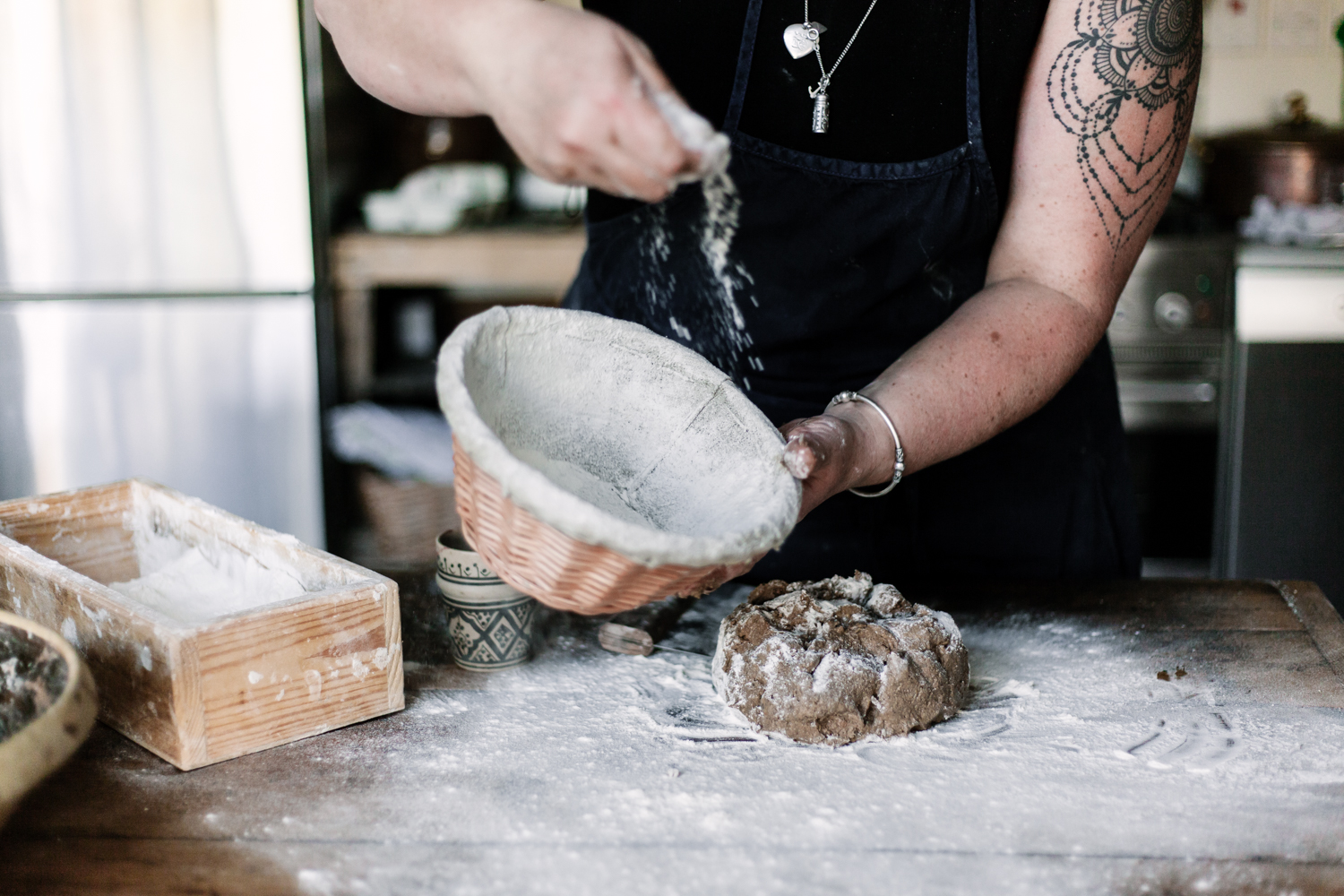Get ready in 2019 for giveaways, good food and great microbiome recipes in partnership with the Sourdough School and founder Vanessa Kimbell.
Fermentation is an essential part of all living life, whether it’s happening in our guts or in the British bread baskets of the Sourdough School. That’s why we’re broadening our horizons and supporting like-minded advocates to put digestive health and microbiome diversity back on our tables, where it should be.
By now, you probably already know that fermentation is an essential part of what your gut bacteria do. But did you know that it is also the main mechanism underpinning gastronomic delights like wine, cheese, chocolate and even some types of coffee? And not so long ago, it was also how we used to make bread.
What’s the deal with sourdough bread?
Humans have actually been fermenting bread for about 5,000 years - and it is the combined action of wild yeasts and bacteria that created the first loaves. When bread is described as “sourdough”, it has been naturally fermented by yeasts and bacteria captured from the air that are cultivated in a flour and water “starter”.
☝️ Fermented foods, also known as “cultured”, contain probiotic and beneficial bacteria that support digestive health. Sometimes fermented foods are pasteurised but there are still health benefits. This is because the microbial activity before pasteurisation has produced nutrients like vitamins and broken down potentially problematic compounds for the gut.
Sourdough bread fermentation produces vitamins as well as enzymes that break down tough wheat proteins. It is this process that has been pinpointed in the digestibility of bread. It also confers the characteristic “sour” taste after which it was named. Preparing a sourdough loaf from scratch can take one or even several days.
It differs from bread you find in the supermarket that depends on commercial yeasts to ensure a fast and consistent rise. Unfortunately, bypassing the long process of fermentation has a negative impact on the nutritional value of mass-produced bread.
It has been suggested that replacing traditional sourdough bread with the standard loaves we eat today is one of the reasons why more and more people experience digestive symptoms related to this dietary staple.
What is the Sourdough School?
But Vanessa didn’t get here by accident. Like many people who turn to gut microbiome testing, she underwent many courses of antibiotics in her lifetime. After years without being able to touch a slice, sourdough rekindled her love of the loaf and ability to digest bread once again.
☝️ The Sourdough School teaches a Nutrition and Digestibility of Bread course for doctors and healthcare practitioners that is accredited by the Royal College of General Practitioners.
Since then, she has dedicated her life to researching and building awareness of fermentation and sourdough bread for gut health. This includes turning the Sourdough School into a centre for research and education.

Image rights © The Sourdough School, photo by Georgie De Lotz
This year, they have launched a brand new 3-day Sourdough and Gut Microbial Health course with before and after testing by Atlas Biomed in June and September 2019. Spots are limited and filling up quickly!
This is what you can expect in 2019 from the Atlas Biomed & Sourdough School partnership:
- Cool recipes by Vanessa to help you add more fermented foods to your diet
- Tips and tutorials to maximise the benefits of your food recommendations
- Giveaways, reviews and discounts for gut and fermentation goodies
It promises to be an exciting year with lots of gut-friendly benefits for you and your microbes. To stay in the know, sign up for blog updates and follow us on social media.
We are proud to partner with forward-thinking members of the food community, like Vanessa Kimbell and the Sourdough School, to empower people at home to get back in the kitchen.
Are you involved in a project that includes fermentation, gut health, great food or the microbiome? Tell us about what you’re doing, email [email protected]



















